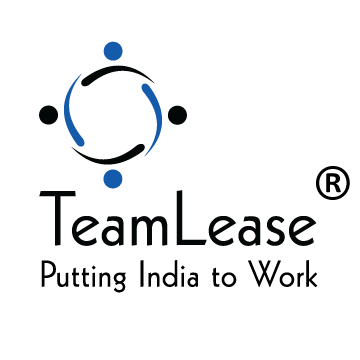ESIC raises wage threshold to Rs.21,000, aims to add 50 lakh workers

The move is expected to bring in 2 crore people—assuming a family of 4—under the Employees State Insurance Corporation net
The government on Tuesday overruled opposition from employers to allow an increase in the number of people eligible for Employees’ State Insurance (ESI), which provides medical care to industrial workers and their dependents, by raising the salary cap of beneficiaries to Rs.21,000 per month from Rs.15,000.
This means all industrial workers drawing a salary of up toRs.21,000 will be eligible for health care—from primary to tertiary—at more than 1,500 clinics and hospitals run by the Employees’ State Insurance Corporation (ESIC) directly or indirectly.
The move will add three million workers to the ESIC pool, benefiting 12 million more people when their dependents are taken into account.
Tuesday’s decision will add nearly Rs.3,000 crore to the labour ministry-run ESIC’s corpus annually.
The pro-worker step comes days after a nationwide labour strike disrupted normal life in parts of the country.
Under the Employees State Insurance Act, eligible employees contribute 1.75% of their salary (basic+allowances) and employers contribute 4.75% to the ESI corpus every month.
“The ESIC board approved the wage ceiling hike to Rs. 21,000,” said Michael Dias, an ESIC board member and secretary of the Employers’ Association, Delhi.
While the labour ministry and the employees’ representatives were for increasing the wage ceiling toRs.25,000 per month, the employers’ representatives resisted, leading to the board settling for Rs.21,000 per month, Dias added.
The last increase in the salary cap for ESI was made back in May 2010, when it went from Rs.10,000 to Rs. 15,000.
As of 31 March 2016, there were some 21 million insured persons or members of ESIC and a total of over 60 million beneficiaries.
A labour ministry official, who attended the board meeting, said that while labour unions are portraying the National Democratic Alliance government as pro-industry, “we are taking several measures which will benefit the workers. After hiking the minimum wage for unskilled labourers in the central government sphere, we have now increased the salary cap for ESI benefits.”
The official, who declined to be named as a formal announcement is slated to be made in a few days’ time, said that Tuesday’s move will widen the social security benefit net for millions of workers.
The decision will be effective from 1 September.
“It’s a pro-worker move and in a way historic. After hiking the minimum wage late last month, the Union government has again taken a pro-employee stand that will benefit 1.2 crore more beneficiaries,” said S. Mallesham, another ESIC board member.
Mallesham is also president of Bharatiya Mazdoor Sangh (BMS) in Telangana.
BMS is a national trade union affiliated to the ruling Bharatiya Janata Party.
But industry representatives said the move will not benefit workers much.
“We said that unless the quality of medical facilities improves increasing the wage ceiling will not be a great decision. When you have some 14,000 vacancies in the ESIC system, how can you serve more people,” Dias said.
Rama Kant Bharadwaj, vice-president of Laghu Udyog Bharati, a federation of small and medium industries, said that while pro-worker decisions are a political compulsion, the government must remember that to stay competitive in the global economy, workers’ costs need to be competitive.
Relaxing the wage ceiling adds to the financial burden of employers, as they have to pay 4.75% of an employee’s salary as ESI contribution salary limit every month.
Sonal Arora, vice-president of staffing company TeamLease Services, said, “Though the decision to increase the wage limit for inclusion in ESIC from the current Rs.15,000 toRs.21,000 is well intentioned, it will have a far-reaching negative impact on employees and corporate India.
“For employees, it will mean a reduction in their take-home salary by as much as 6.5% at the onset of the festive season when they would rather have money in their hands. For employers, it will lead to more hassles as compliance and documentation will increase,” he added.
Other than hiking the wage ceiling, the ESIC board also allowed employees to continue as members even after their wages cross the Rs. 21,000 threshold.
Currently, a worker goes out of the purview of the ESIC once their salary crosses the wage ceiling.
“This is a good move, as older employees need more medical attention and it should be left to the workers to decide if they want to stay with ESIC after their salary crosses the threshold,” Bharadwaj added.
ESIC: Wage ceiling hikes over 20 years
- From Rs3,000 to Rs6,500: effective 1 January 1997.
- From Rs6,500 to Rs7,500: effective 1 April 2004.
- From Rs7,500 to Rs10,000: effective 1 October 2006.
- From Rs10,000 to Rs15,000: Effective 1 May 2010.
- From Rs15,000 to Rs21,000: Effective 1 September 2016.
Latest Blogs
Apprenticeship India: A Guide to NAPS, NATS & Compliance
As India strengthens its workforce strategy, apprenticeship initiatives in India are gaining renewed relevance for employers across sectors. With skill gaps widening and compliance requirements...
Read MoreHow Apprenticeships in India Help Build Job-Ready Talent?
In a fast-evolving job market, businesses across India face a common challenge: finding candidates who are not just qualified on paper but ready to perform...
Read MoreStrategic Workforce Planning in India: Why Smart Talent Strategy is Important?
For years, strategic workforce planning in India was treated as a back-office exercise—something to be revisited when hiring pressure built up or attrition spiked. That...
Read MoreUnion Budget 2026–27 Decoded: What MSMEs and HR Leaders Need to Know
The Union Budget 2026-27, presented on 1 February 2026, signals a deliberate shift toward employment-centric growth, combining sectoral demand creation with long-term investments in skills,...
Read MoreNew Labour Codes: A Compliance Guide for Employers
India’s labour landscape has entered a historic transition with the notification of the four consolidated Labour Codes—the Code on Wages (2019), Industrial Relations Code (2020),...
Read More





